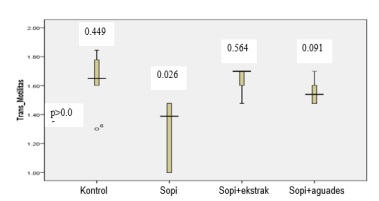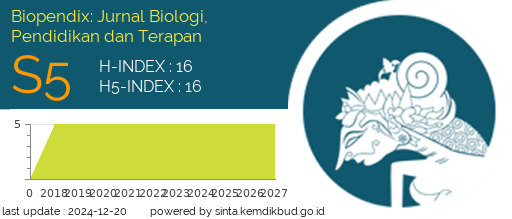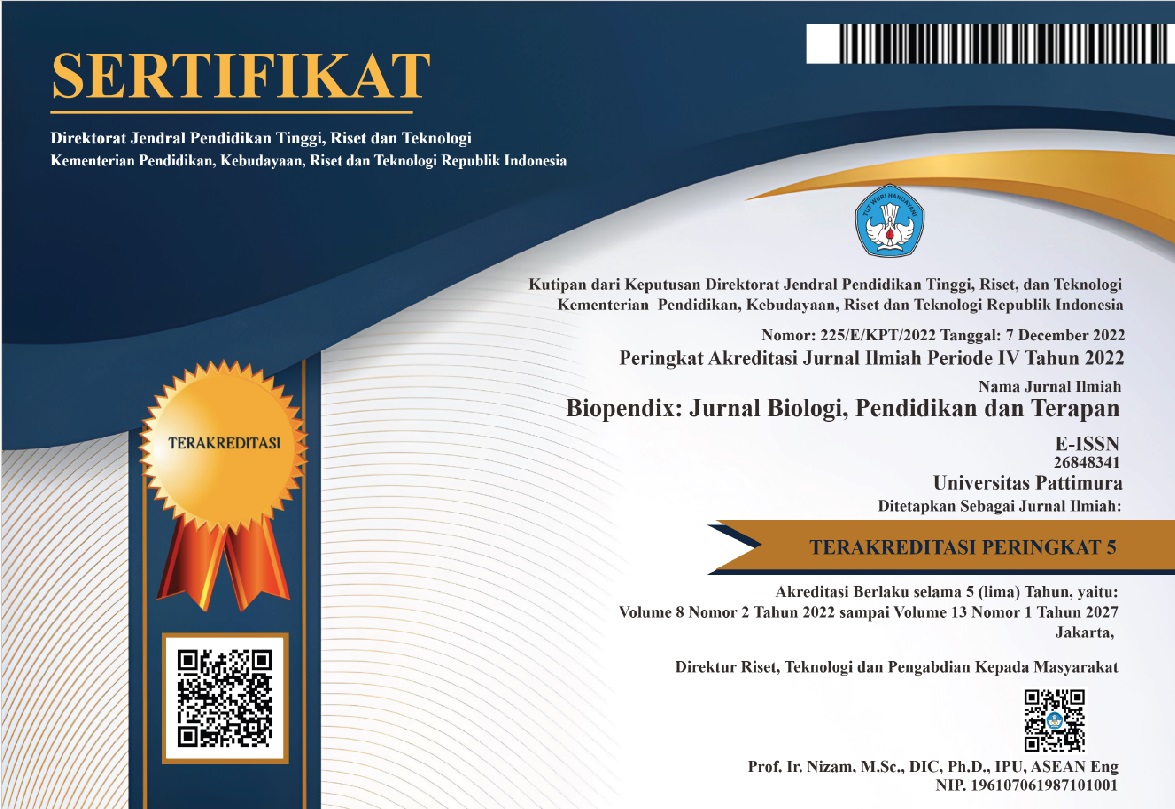POTENTIAL OF CLOVE EXTRACT (Syzygium aromaticum) ON SPERMATOZOA RATS (Sprague dawley) EXPOSED TO ARAK AMBON (SOPI)
Abstract
Introduction. Sopi is traditional drink from Maluku province which is often consumed in activities related to traditional events. Sopi drink comes from fermented Arenga pinnata which has undergone distillation. Clove leaf extract is a compound that has the effect of preventing cellular damage. Objective. To prove that administration of clove leaf extract can improve the spermatozoa of rats exposed to alcoholic sopi.
Material and method. Experimental research with a post test only control group design. Spraguey dawley rats consisted of 24 rats and were divided into 4 groups consisting of a control group and a treatment group. The first treatment was given sopi as much as 4 ml/day, the second treatment was given sopi 4 ml/day for 16 days then continued with the administration of clove leaf extract at a dose of 1 ml/day for 17 days, the third treatment was given sopi 4 ml/day for 16 days then continued with provision of distilled water for 17 days. The different test for spermatozoa motility used the Kruskal-Wallis followed by the Mann Whitney test, while the number of spermatozoa used the One Way Anova test.
Results. The average value of motility in the sopi treatment group (1,288) was lower than the control (1,637) and the sopi+extract treatment (1,670) was higher than the sopi+aquades (1,555). The results of the Kruskal-Wallis test for spermatozoa motility (p=0.011) showed a significant difference (p<0.05). Meanwhile, the average value of spermatozoa in the sopi treatment group (2.029) was lower than the control (2.228) and the sopi+extract (2.272) was higher than the sopi+aquades (2.145).
Conclusion. The administration of the traditional drink arak sopi lowered the motility and number of spermatozoa, while the administration of clove leaf extract increased the motility and number of spermatozoa.
Downloads

Authors who publish with this Journal agree to the following terms:
- Author retain copyright and grant the journal right of first publication with the work simultaneously licensed under a creative commons attribution license that allow others to share the work within an acknowledgement of the work’s authorship and initial publication of this journal.
- Authors are able to enter into separate, additional contractual arrangement for the non-exclusive distribution of the journal’s published version of the work (e.g. acknowledgement of its initial publication in this journal).
- Authors are permitted and encouraged to post their work online (e.g. in institutional repositories or on their websites) prior to and during the submission process, as it can lead to productive exchanges, as well as earlier and greater citation of published works




 2
2






